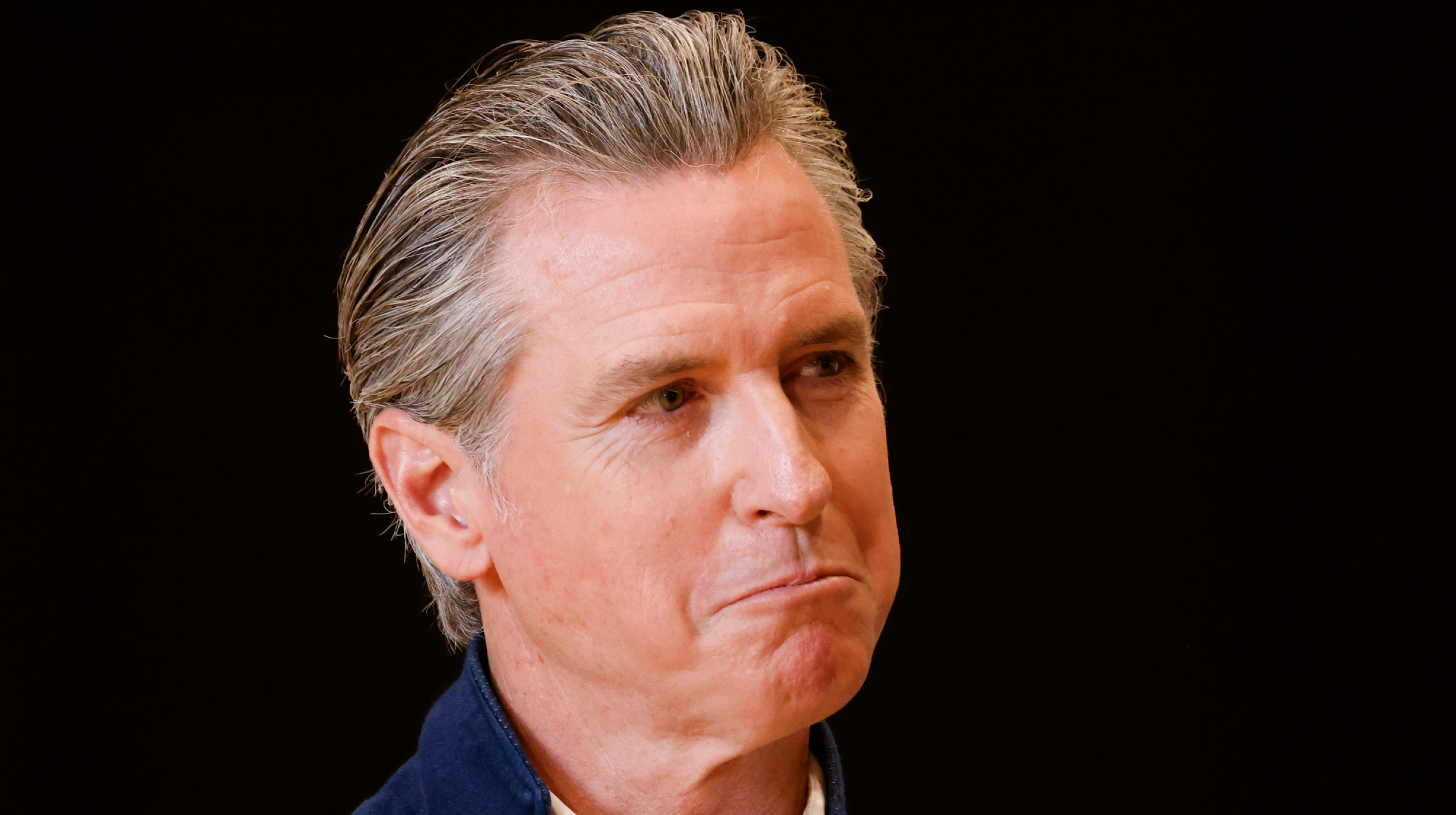Why geothermal energy should be Biden's easy answer to the fracking question
Get all those oil and gas workers building the zero-carbon future


Pennsylvania is second only to Texas in natural gas production, and President Trump basically has to win the state to have any reasonable chance of victory. Thus, he is relentlessly attacking Joe Biden on the issue of fracking. At a rally in Erie recently, he said the "Democrat Party hate fracking, they hate coal, good beautiful clean coal … they hate American energy and Joe Biden will shut it all down."
This is a lie regarding Biden's platform. He promises to ban new fracking on federal land, which is not even close to banning it altogether.
However, it is actually true that fracking is not long for the world, no matter what Biden does. Luckily, there is a zero-carbon energy alternative that is ready to employ all the laid-off oil and gas workers, and a lot more besides: geothermal. This should be Biden's easy response to Trump's taunts and the actual problem of lost oil and gas jobs.
Subscribe to The Week
Escape your echo chamber. Get the facts behind the news, plus analysis from multiple perspectives.

Sign up for The Week's Free Newsletters
From our morning news briefing to a weekly Good News Newsletter, get the best of The Week delivered directly to your inbox.
From our morning news briefing to a weekly Good News Newsletter, get the best of The Week delivered directly to your inbox.
The reason that oil and gas fracking is all but doomed is that wind and solar are now beating all other technologies for new generation capacity on price in most places across the country — nuclear, coal, oil, and even natural gas — and they will only get cheaper. With even modest climate policy, superior zero-carbon technology will soon out-compete most carbon-based electricity and transportation. With aggressive policy, that process will happen much faster. Furthermore, the coronavirus pandemic has walloped the fracking industry, as oil demand has cratered with the collapse of travel. Indeed, the government will probably have to spend billions of dollars over the coming years capping wells that bankrupt fracking outfits have (as usual) abandoned because they didn't have enough insurance.
The good news is that, as David Roberts writes in an extensive article for Vox, geothermal power technology is finally reaching the liftoff stage. This is one of those technologies that is theoretically very promising but an engineering nightmare. Essentially, the molten core of the earth is very hot thanks to the decay of radioactive isotopes inside it, and you can use that (virtually inexhaustible) heat to generate electricity. In certain volcanically active places you can access the heat easily, but to really get at the potential, you've got to build geothermal stations all over the place. That means drilling down hundreds or thousands of feet to get to the hot zone, and transporting that heat back up somehow to run a turbine.
Geothermal would be an excellent complement for wind and solar, because it can be switched on and off at will — providing either baseload or quick-deployment power to compensate for changing wind and sun conditions, but until now it hasn't been feasible at a large scale.
For years the drilling technology to do this kind of thing did not exist. Ironically, the fracking revolution has created exactly the innovations needed. One method is to find a natural reservoir of hot water trapped relatively close to the surface, pump it out through a well, and then pump it back down again once it has run the turbine. Or you can create a new reservoir by pumping down some water to crack apart the rock layers, and then pumping it back out again. Further along the engineering frontier, you can drill down very far to get water hot enough that it becomes "supercritical" and hence able to hold dramatically more energy, or heat the water through an entirely closed loop with deep horizontal pipes.
The second option is akin to oil and gas fracking, and it's bound to raise some environmentalist hackles because of all the water contamination and seismic instability that have come with that process. However, as Roberts points out, there are key differences that make geothermal substantially less risky. For instance, the point is to get enough water down that it can be sucked back up, not shake loose fossil fuels by blasting the rock layers apart. That means safer fluid (typically water or brine, as opposed to the toxic chemicals used in gas fracking) injected at lower pressure, and a steady process of injection and removal once the operation is going. Most induced earthquakes from gas fracking come after the waste water is re-injected into the well all at once, which would not happen here. It's not zero-risk, but it's likely tolerable with safety mechanisms given the benefits. After all, even wind turbines and solar panels come with some environmental trade-off.
The technology also isn't quite there with supercritical or closed-loop geothermal, which would be extra efficient and much cleaner respectively. That is where the government can step in to jump-start these technologies with grants, loans, or just doing the work itself.
If geothermal were to be radically scaled up, it would surely provide enough jobs to take up the entire oil and gas workforce, and a lot more besides. We're talking thousands of power plants all over the country. It's a perfect candidate for a "green transition" to avoid big chunks of the labor force being thrown away — indeed, those drilling and geology skills will come in handy. Better still, these jobs could be spread out around the country instead of concentrated in a few carbon-rich states, and remain relatively stable and permanent. Instead of the boom-bust cycle seen in oil and gas as the entire industry gyrates wildly based on commodity price movements, we could have steady, consistent jobs building, operating, and maintaining power facilities for decades.
President Trump and the Republican Party are clinging to an outdated, dangerous, filthy technology because they make policy to help incumbent vested interests and stoke their culture war grievance machine. But zero-carbon geothermal power could keep the drillers and geology experts employed indefinitely — it would be a perfect part of Biden's $2 trillion climate plan. So when conservatives moan about all the jobs a climate plan would supposedly cost, just remember there's better and cleaner energy under the ground, and we'll need workers to get at it.
A free daily email with the biggest news stories of the day – and the best features from TheWeek.com
Ryan Cooper is a national correspondent at TheWeek.com. His work has appeared in the Washington Monthly, The New Republic, and the Washington Post.
-
 Gavin Newsom mulls California redistricting to counter Texas gerrymandering
Gavin Newsom mulls California redistricting to counter Texas gerrymanderingTALKING POINTS A controversial plan has become a major flashpoint among Democrats struggling for traction in the Trump era
-
 6 perfect gifts for travel lovers
6 perfect gifts for travel loversThe Week Recommends The best trip is the one that lives on and on
-
 How can you get the maximum Social Security retirement benefit?
How can you get the maximum Social Security retirement benefit?the explainer These steps can help boost the Social Security amount you receive
-
 The last words and final moments of 40 presidents
The last words and final moments of 40 presidentsThe Explainer Some are eloquent quotes worthy of the holders of the highest office in the nation, and others... aren't
-
 The JFK files: the truth at last?
The JFK files: the truth at last?In The Spotlight More than 64,000 previously classified documents relating the 1963 assassination of John F. Kennedy have been released by the Trump administration
-
 'Seriously, not literally': how should the world take Donald Trump?
'Seriously, not literally': how should the world take Donald Trump?Today's big question White House rhetoric and reality look likely to become increasingly blurred
-
 Will Trump's 'madman' strategy pay off?
Will Trump's 'madman' strategy pay off?Today's Big Question Incoming US president likes to seem unpredictable but, this time round, world leaders could be wise to his playbook
-
 Democrats vs. Republicans: which party are the billionaires backing?
Democrats vs. Republicans: which party are the billionaires backing?The Explainer Younger tech titans join 'boys' club throwing money and support' behind President Trump, while older plutocrats quietly rebuke new administration
-
 US election: where things stand with one week to go
US election: where things stand with one week to goThe Explainer Harris' lead in the polls has been narrowing in Trump's favour, but her campaign remains 'cautiously optimistic'
-
 Is Trump okay?
Is Trump okay?Today's Big Question Former president's mental fitness and alleged cognitive decline firmly back in the spotlight after 'bizarre' town hall event
-
 The life and times of Kamala Harris
The life and times of Kamala HarrisThe Explainer The vice-president is narrowly leading the race to become the next US president. How did she get to where she is now?
